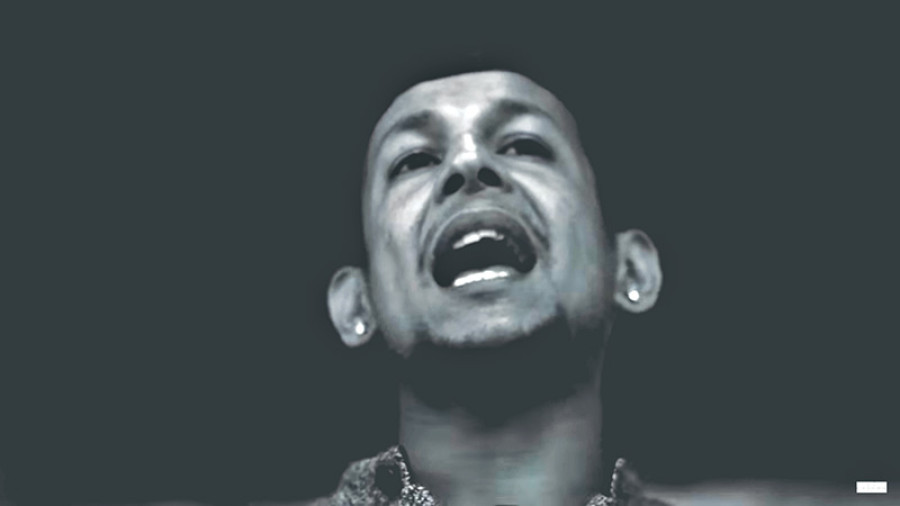Miscellaneous
Swan song
Three months after rapper Yama Buddha’s death, his final album, Khatra, was released via the music streaming site beingexplicit.com in March. Now, a video to the album’s first song, Taaz, reportedly shot a few days before the rapper’s death, has recently been floated on YouTube.
Timothy Aryal
Three months after rapper Yama Buddha’s death, his final album, Khatra, was released via the music streaming site beingexplicit.com in March. Now, a video to the album’s first song, Taaz, reportedly shot a few days before the rapper’s death, has recently been floated on YouTube. The album eerily reminds one of the late rapper’s verbal gifts, and is a powerful testament to his contributions to Nepal’s rap scene, immense as they are.
Yama Buddha broke into the Nepali rap scene as a typical Nepali youth, who is dissatisfied with the society, seeking for an escape—which manifest in his early records such as Sathi and the searing Paagalpan. The songs speak of the artist’s loneliness and his will to show an indignant ‘middle finger’ to the society, as he proclaims in Allare Thita. This very spirit is what, when coupled with the rapper’s compelling vocals, found its way quickly into millions of audience’s heart, and this defiant spirit comes a full circle in his final album Khatra.
The opening song, Taaj, paints a grim view of the society, where “no one is a Buddha and everyone is a dhongi.” The narrator’s mother asks him what little has he earned, he has nothing to answer. This fate the narrator blames to the society, and in some part he is right (especially when he touches upon the political misgivings in later songs in the album). After several musings on his fate, the narrator, towards the end of the song, reaches to the conclusion that his dreams are still alive, and he is ready to overcome any hurdles.

While in Khatra, Yama Buddha projects himself as just another rapper, albeit the king of them all, battling it out at the Rap Battle. He celebrates himself, like this: “Hami lai sakdainas jitna, kahile ni hip-hop ko beat ma, boldaichhu timarko heet ma, aaija hami sanga rap sikna. [You can’t defeat us, never in the beat of hip-hop. I am speaking for your good, come over to us to learn the rap.” The song is sung in the fashion of Raw Barz, which Yama Buddha pioneered, paving way for a host of fellow rappers to follow suit.
In Sapana, Yama Buddha is a dreamy young man, who wonders if everything is but just a dream. This motif of dreams is continued in Allare Thita, my favourite from the album, where the narrator harbours dreams plenty, but is currently finding solace in chhyang. He doesn’t want to go home because his parents would disapprove of his drunken self. But still, in the contrary, he doesn’t care much (maajhi aaula aakash tira, kasailai ni baal dinna). In this song, too, which is much akin to Footpath Mero Ghar, Yama Buddha sings the song of loneliness.
In Yodda, Yama Buddha brags he would stun everyone borrowing phrases from Bhanu Bhakta, Laxmi Prasad or Narayan Gopal. But Yama Buddha doesn’t have the poetic gifts of Laxmi Prasad Devkota, neither does he have the musical gifts of Narayan Gopal, and he knows it. He knows who he is and that is why he is so sure of himself.
In fact, Yama Buddha’s poetry sounds, to this scribe, almost trivial. At several instances, it sounds as if the singer has pulled a certain word in just because it completes the rhyme sequence. While at others he seems to impart some deep ideas through such deceptively simple words, as he does in Allarey Thita, “Tara ke majja chha ra nahaari jitda?” Or in the album’s final track, K Vako Hola: “Talai tehi nai thhik chha, video banaais keti nachaais, la babu thhik, Nepal jasto desh ma je pani bikchha.” In essence, this simple rhyme coupled with indignant, assured vocals is what makes Yama Buddha, Yama Buddha.
In Aaudai Chhu Ma, one of his early songs, Yama Buddha tells us what he is: “I am not any don, loot or a goon. My heart is pure, and I am just a common Nepali... I have to fulfil the dreams that I have harboured aplenty.” This saajha Nepali version of Yama Buddha was perhaps what was celebrated so widely, when the rapper died in January this year.
In my favourite of all Yama Buddha records, Ma Futchhu tara Jhukdina, the rapper sings: “I might break but I won’t bow. I will fight all day, won’t sleep. I will march on, till I reach my destination. I won’t back out from my duty, I don’t understand anything impure, won’t hide from the truth.” Yama Buddha departed too soon, but the spirit his final album, and indeed his whole oeuvre, carries will continue to resonate within us listeners for a long time.




 9.89°C Kathmandu
9.89°C Kathmandu










